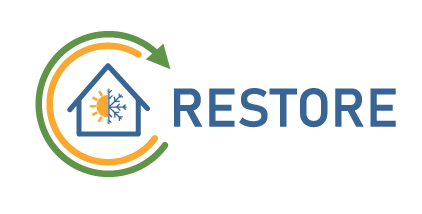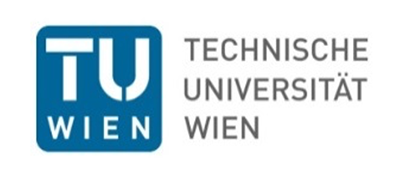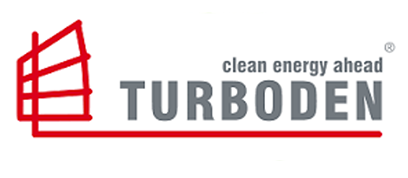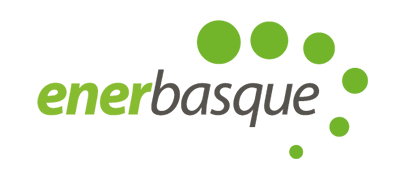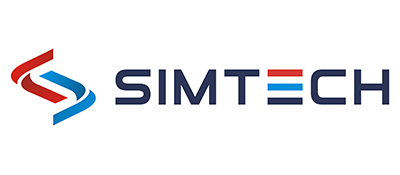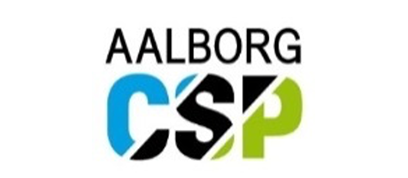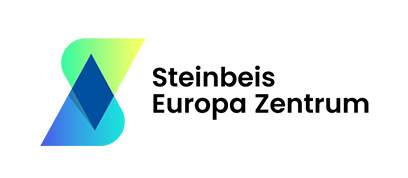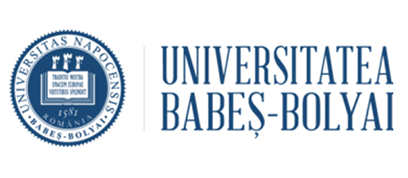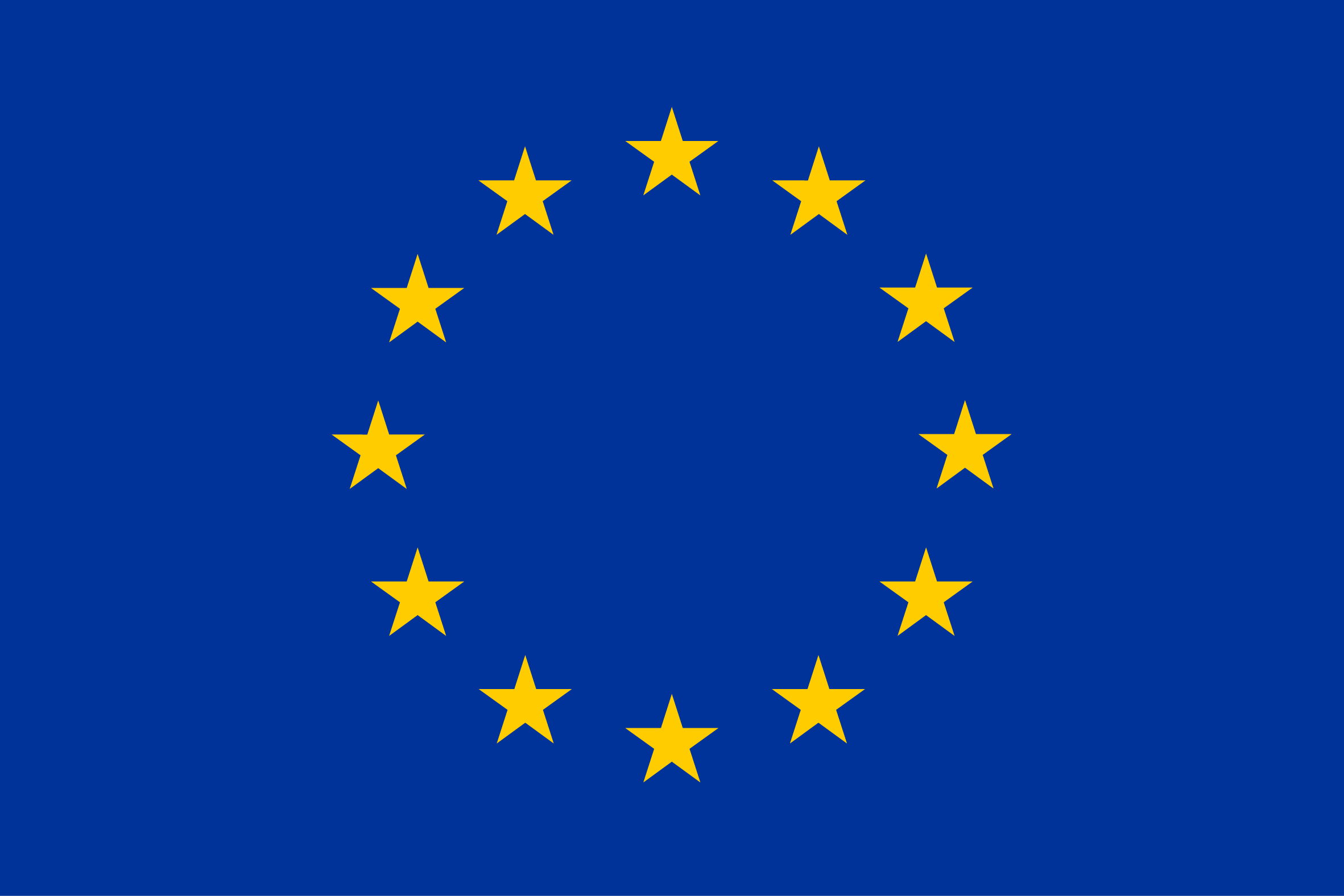12 partners from 7 countries collaborate on the RESTORE project:
National Renewable Energy Centre of Spain (CENER)
 The National Renewable Energy Centre of Spain (Fundación CENER) develops applied research in renewable energies, and provides technological support to companies and energy institutions in five areas: wind, solar thermal and photovoltaic solar energy, biomass, energy storage and energy transition in cities, and grid integration of energy. Fundación CENER is a technology centre with worldwide recognised prestige, activity and experience.
The National Renewable Energy Centre of Spain (Fundación CENER) develops applied research in renewable energies, and provides technological support to companies and energy institutions in five areas: wind, solar thermal and photovoltaic solar energy, biomass, energy storage and energy transition in cities, and grid integration of energy. Fundación CENER is a technology centre with worldwide recognised prestige, activity and experience.
Fundación CENER is currently developing 52 R+D+i projects, acting as coordinator in 14 of them, which receive funding from the European Commission, the Government of Spain and the Government of Navarra. All of them are projects with a varied theme in which it is a matter of using the knowledge acquired to develop applied technology, with the aim of collaborating in the necessary energy transition.
The Board of Trustees consists of the Spanish Ministry of Science and Innovation, Ciemat, the Ministry for the Ecological Transition and Demographic Challenge, and the Government of Navarre.
Fundación CENER’s headquarters is located close to Pamplona (Navarre-Spain). The centre has also cutting-edge technological infrastructures, such as the Wind Turbine Test Laboratory (LEA) and the Biorefinery and Bioenergy Centre (BIO2C) and an office at Seville (Andalusia –Spain).
Fundación CENER´s expertise is focused on three main areas:
- Development of R+D+i projects for industrial application.
- Highly skilled testing services and certification for components.
- Technical assistance and feasibility studies for renewable energy technologies.
Fundación CENER’s activity covers the entire renewable energy generation process:
- Renewable Resource Assessment.
- Development of Simulation and Design Tools.
- Development of Renewable Energy Generation Technology.
- Definition and Performance of Tests on complete systems and components.
- Technological Risk Assessment.
- Feasibility Studies.
- Development and Application of Regulatory Law
Role in RESTORE
The technical team involved in H2020 RESTORE belongs to the Solar Energy Technologies and Storage Department. The department’s experience covers a wide range of developments in different areas such as photovoltaics, solar receiver and collector technologies, thermal energy storage technologies and power cycles, working from research at the laboratory scale to the design, construction and evaluation of commercial solar demonstration plants, unique in its kind, and including the development of experimental prototypes.
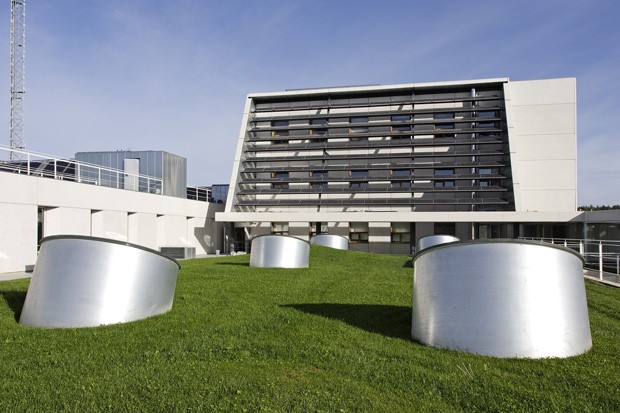
Figure: Fundación CENER’s headquarters in Pamplona
Technische Universität Wien
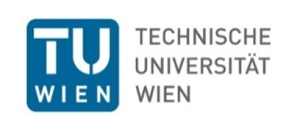
Technische Universität Wien, located in the centre of Vienna, is one of Austria’s largest research and educational institutions with more than 26 200 students (19% foreign students / 30% women), 4 000 scientists (1800 academics), five main research areas and eight faculties.
Out of the 50 institutes, two provide a team of interdisciplinary researchers to work on the Horizon 2020 RESTORE project. The Institute of Chemical, Environmental and Bioscience Engineering unifies aspects of mechanical engineering, chemistry, physics, biology and electrical engineering. Their research focuses on the optimisation of existing and the creation of new industrial processes, particularly conservation of resources and environmental protection.
The Institute of Energy Systems and Thermodynamics is the centre of competence for Energy Technology with focus on novel thermodynamic cycles and on industrial energy systems. Their applied research aims to build innovative solutions for different industries to shape a more climate-friendly and sustainable world.
Role in RESTORE
Both institutes share over ten years of experience and expertise in TCES (thermochemical energy storage), an innovative solution for long-term heat storage. Within the project, TU Wien is working to find suitable reversible chemical reaction systems and is developing a new reactor concept to provide loss-free heat storage.
The team consists of three professors and several doctoral and master’s students responsible for the basic and detail engineering of the TCES system. Through work in the laboratory at the Institute of Chemical, Environmental and Bioscience Engineering, the basic reaction principles of suitable chemical systems are observed and proven via lab-scale batch-process reaction experiments. Furthermore, TU Wien’s team designs and constructs the two pilot-scale TCES prototypes (1-2 kWth and 30-50 kWth) built within the project. Finally, the integrated system (TCES system combined with the reversible Organic Rankine Cycle) will be tested in the Institute of Energy Systems and Thermodynamics laboratory.
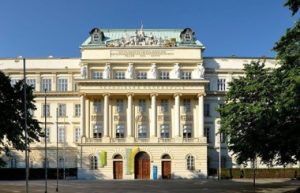
Figure: Main building of Technische Universität Wien
Turboden clean energy ahead
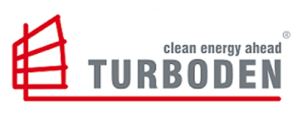 Turboden, a Mitsubishi Heavy Industries group company, is an Italian firm and a global leader in the design, manufacture and maintenance of Organic Rankine Cycle (ORC) systems, highly suitable for distributed generation. ORC systems can generate electric and thermal power exploiting multiple sources, such as renewables (biomass, geothermal energy, solar energy), traditional fuels and waste heat from industrial processes, waste incinerators, engines or gas turbines.
Turboden, a Mitsubishi Heavy Industries group company, is an Italian firm and a global leader in the design, manufacture and maintenance of Organic Rankine Cycle (ORC) systems, highly suitable for distributed generation. ORC systems can generate electric and thermal power exploiting multiple sources, such as renewables (biomass, geothermal energy, solar energy), traditional fuels and waste heat from industrial processes, waste incinerators, engines or gas turbines.
The company was founded in 1980 in Milan by Mario Gaia, Professor of Energy at the Politecnico di Milano and today Honorary Chairman of Turboden. In 2013 Turboden became part of Mitsubishi Heavy Industries group that strongly supports Turboden in the development of innovative solutions.
Thanks to its long experience in the energy efficiency sector, today Turboden broaden its solution portfolio with gas expanders and large heat pumps to contribute to the worldwide efforts to mitigate global warming by creating reliable and clean energy systems.
Turboden gas expander is a solution to enhance the energy efficiency of a natural gas network infrastructure, producing electricity by taking advantage of the reduction of gas pressure from the delivery level to the one required by users, be they residential or industrial.
Large Heat Pumps are at the forefront of the strategy for the electrification of heat in an increasingly decarbonised power grid. Through the supply of Large Heat Pumps Turboden wishes to play a broader role in the decarbonisation of the District Heating sector and of some energy-intensive industrial processes.
Role in RESTORE
In RESTORE project Turboden will study and analyse the thermodynamic cycle design of large-scale systems to accomplish best efficiency compromise keeping into account actual compressor and turbine for large scale and a cost evaluation of a reversible unit. Turboden will also be involved in the EU Regulation & Standards for replication at EU level and in the replication activity through the use of real Use Cases for virtual simulation of the RESTORE system.
ENERBASQUE S.L.

ENERBASQUE is a Spanish SME company founded in Vitoria-Gasteiz in 2012 by Miguel A. Dominguez and Javier Calviño, focused on small and medium scale waste heat recovery systems. Based on its own technology, ENERBASQUE designs, manufactures and commercializes customized ORC systems (HRU units) from 5 KWe up to 100 KWe, recovering low grade heat (from 85ºC/185ºF).
Enerbasque has participated in multitude of innovative projects in the field of efficiency and the integration of technologies to generate energy.
Role in RESTORE
In RESTORE project, ENERBASQUE will develop and validate a dual Organic Rankine Cycle / Heat Pump technology (onwards rORC – Reversible Organic Rankine Cycle) under temperature ranges required by the storage system, defining application limits based on different vector fluids used. Furthermore, as the storage system has a variable temperature, ENERBASQUE will develop and validate a control logic for the rORC in this variable temperature system and, finally, will explore the feasibility of transferring this technology to waste recovery energy systems of industrial batch processes.
ENERBASQUE’s technical role in the project is mainly related to WP3, selecting right working fluid (Task 3.1) and thermodynamic cycle design (Task 3.2); full WP4, from prototype specifications, conceptual and detailed design to prototype testing (Task 4.1 to 4.5); and WP5 related to market analysis and identification and management of exploitable results.
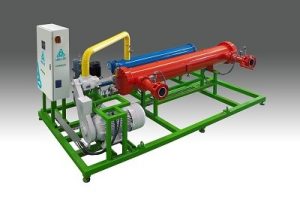
Figure: ORC system
SIMTECH GmbH
SIMTECH provides state of the art modelling tools and services for the power & process industries, with its highly open and flexible modelling and simulation envirnoment IPSEpro. For projects, it offers innovative engagement in ICT, providing competent and efficient services for supporting Research & Development (R&D) and Research & Innovation (R&I) international projects, assisting project partners and stakeholders in the exploitation of deployable products. To this end, SIMTECH counts with experienced and highly qualified key-team members and with a pool of complementary experts to cover specific knowledge and application areas.
Role in RESTORE
The role of SIMTECH in the RESTORE project is to contribute to the numerical validation of the RESTORE overall system, via the modelling of all individual components of the system; as well as the techno-economic modelling of the integrated system; and its dynamic behaviour and optimization deployed in the web simulation platform. This will then serve to implement the six RESTORE Use-Cases, integrating the project solution with different renewable energy sources within various applications, connected to different scales of DHC networks.
In RESTORE, SIMTECH leads the Work Package about “EU-wide Replication in Virtual Representations of Real Use-Cases”, serving as technology provider as well as development partner, and supporting the project via the use of its simulation environment IPSEpro and its Program Modules and Model Libraries.
The deployment of SIMTECH’s web-based process simulation platform, based on IPSEpro and adapted to RESTORE needs, will allow the project partners and end-users (during the project lifetime) to assess, control and monitor the project’s developed processes. The web-platform will also be to demonstrate the project’s Use-Cases interacting with the RESTORE Stakeholder ecosystem for exploitation purposes.

Figure: SIMTECH’s Web-based Service – IPSE GO Process Simulation Platform.
Aalborg CSP A/S
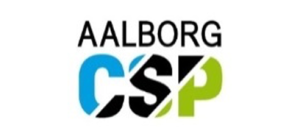 Aalborg CSP A/S is a leading developer and supplier of innovative, renewable technologies with the vision Changing Energy aiming at changing the way of energy production and storage. We design and supply green solutions and integrated energy systems based on solar power, energy storage within power-to-X (PTXHEAT and PTXSALT), heat exchange and much more. for industries and power plants worldwide.
Aalborg CSP A/S is a leading developer and supplier of innovative, renewable technologies with the vision Changing Energy aiming at changing the way of energy production and storage. We design and supply green solutions and integrated energy systems based on solar power, energy storage within power-to-X (PTXHEAT and PTXSALT), heat exchange and much more. for industries and power plants worldwide.
Since 1988, Aalborg CSP has been utilizing its immense expertise within design and delivery of boilers, complex systems, renewable energy technologies and energy storage. Thereby, we have a deep understanding of individual energy needs, technology- and system integration as well as optimization with key competences such as performance modelling and system design.
Aalborg CSP A/S places strong focus on R&D activities and works both internally within the company and externally with Danish and international knowledge-based companies and institutions in continuously creating innovative and sustainable technologies.
Aalborg CSP offers a wide variety of renewable energy solutions including high- and low temperature energy storage, solar panels, heat pumps, boilers, integrated energy systems as well as customized Power-to-X solutions. We match individual energy needs with the right systems and technologies and integrate and combine solutions to achieve synergies between both sectors and technologies. We do so in order to create the optimum value for our clients, while also optimizing the utilization of the world’s energy sources aiming for a CO2 neutral future.
Headquartered in Aalborg (Denmark) and with a sales & service office in Spain, Aalborg CSP A/S has realized cost-effective green energy solutions worldwide.
Role in RESTORE
In RESTORE, Aalborg CSP provides its strong knowledge based on power plant projects and district heating projects around the world, specifically at WP5 through its experience in the design an construction of the Brønderslev project (Use-Case I: Residential / Industrial DHC with Biomass and Solar Collectors in Denmark).
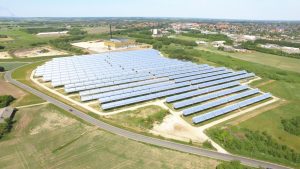
Figure: Concentrating Solar Collectors in Brønderslev
Solites
 The Steinbeis Research Institute for Solar and Sustainable Thermal Energy Systems – Solites works in all areas of solar and sustainable thermal energy systems that contribute significantly to reducing CO2 emissions. As a research institute in the Steinbeis network, the focus is on innovative and new technologies for which the state of the art does not yet exist or where it needs adaptation to new problems.
The Steinbeis Research Institute for Solar and Sustainable Thermal Energy Systems – Solites works in all areas of solar and sustainable thermal energy systems that contribute significantly to reducing CO2 emissions. As a research institute in the Steinbeis network, the focus is on innovative and new technologies for which the state of the art does not yet exist or where it needs adaptation to new problems.
Solites’ range of services includes basic and applied research, project development, technical concept development, system simulation, design and optimization of complex thermal energy systems by simulation, scientific-technical accompaniment of planning, tendering, commissioning and construction, operation optimization, measurement data analysis and evaluation as well as support and advice for political initiatives and market development.
Solites was founded in May 2005 by former employees of the Institute for Thermodynamics and Thermal Engineering at the University of Stuttgart. Since then, the Solites team has been growing steadily and has strategically expanded its professional leadership in its business areas. Solites scientists are member or chairman of national and international expert groups, advise ministries and funding agencies.
Role in RESTORE
In the RESTORE project, Solites is leader of WP7 and such responsible for the Dissemination & Communication (D&C) management. Within WP7, Solites coordinates the strategy finding and planning of D&C activities. Solites supports the access to RESTORE target groups, especially the district heating sector and delivers know-how regarding this sector for the highest impact of the RESTORE project. Furthermore, they assist Prospex Institute building a user community for the RESTORE virtual tool.
Steinbeis Europa Zentrum
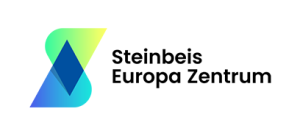 Steinbeis Europa Zentrum consists of three strong partners: Steinbeis EU FOR YOU, Steinbeis 2i GmbH and Steinbeis IDEA Europe. Steinbeis Europa Zentrum is committed to working in the areas of innovation and internationalisation as well as transnational technology transfer to stimulate and support the innovation process in industrial companies. The company has been operating since 1990, supporting innovation of SMEs, cross-border technology transfer, building innovation capacities in SME, and supporting SME´s participation in EU research projects.
Steinbeis Europa Zentrum consists of three strong partners: Steinbeis EU FOR YOU, Steinbeis 2i GmbH and Steinbeis IDEA Europe. Steinbeis Europa Zentrum is committed to working in the areas of innovation and internationalisation as well as transnational technology transfer to stimulate and support the innovation process in industrial companies. The company has been operating since 1990, supporting innovation of SMEs, cross-border technology transfer, building innovation capacities in SME, and supporting SME´s participation in EU research projects.
Well-connected with international partners and networks, Steinbeis Europa Zentrum stands by companies, start-ups, universities, research institutions and cluster initiatives on issues of innovation management, financing, EU applications, international markets, regional and social transformation and innovation policy. Its wide portfolio of EU projects cover various technology areas to which it has contributed its expertise in exploitation, dissemination and communication.
Role in RESTORE
The role of Steinbeis Europa Zentrum in the project is to lead the exploitation of commercial and research results including business modelling. As such, it is the responsible partner for “WP6 – Exploitation and Business Model Development”. The objective of this work package is essentially to define the most suitable strategy ensuring a good and sustainable exploitation of project results as products, processes and services.
Its main tasks will be:
- Setup of exploitation and IP strategy
- Identification and clarification of background, project and exploitable results
- IP management and monitoring of promising solutions
- Market evaluation
- Definition of Business Models
- Roadmap for the Key Exploitable Results
Universitatea Babes Bolyai
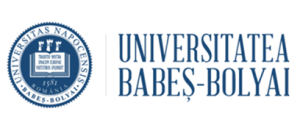
Universitatea Babes Bolyai (UBB) is located in Cluj-Napoca, Transylvania, Romania. Set up in 1581, UBB is the oldest and one of the most prestigious Romanian universities, with a long tradition in education, research and service standards towards the community and society.
The university has 22 faculties and is considered to be a model for multiculturalism, having four lines of study – Romanian, Hungarian, German and English – for its approximately 50 000 students. The largest fields of education are Mathematics and Natural Sciences, Biology and Biomedical Sciences, Engineering Sciences, Social Sciences, Humanities and Art. UBB is also a ‘research-intensive university‘, by covering all three fundamental components of the RDI activity: (1) fundamental and applied research; (2) development (creation of new prototype products, technologies and services through research); and (3) innovation (implementation in the socio-economic environment of innovative services, technologies, and products resulting from fundamental or applied research).
Role in RESTORE
In the RESTORE project, UBB is represented by the team from the Faculty of Chemistry and Chemical Engineering, the Chemical Engineering Department. Here, the collaborative efforts from researchers and professors has been leading to the international recognition in the field of mathematical modelling, simulation, optimization, as well as process integration and environmental evaluation of various processes for chemicals production and power generation. Within the RESTORE project, the UBB team will focus on the environmental evaluation, using Life Cycle Assessment (LCA) methodology of the RESTORE concepts, as well as on the recyclability. Based on their experience in chemical and thermal modelling, the team will be participating in the modelling of the thermochemical energy storage (TCES), and also in the quantification of the environmental impact in each of the six virtual use-cases intended within the project.
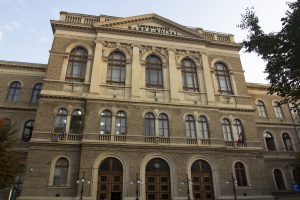
Figure: Babes-Bolyai University main building in Cluj-Napoca city in Romania.
Prospex Institute
 Prospex Institute (PI) is a niche organization with unique expertise in stakeholder engagement and with the focus on societal challenges. Our experts have worked extensively for public organisations, businesses and civil society around the world on a broad range of issues and across sectors, such as in innovation, technology, energy, environment, education, ICT, construction, health and transport.
Prospex Institute (PI) is a niche organization with unique expertise in stakeholder engagement and with the focus on societal challenges. Our experts have worked extensively for public organisations, businesses and civil society around the world on a broad range of issues and across sectors, such as in innovation, technology, energy, environment, education, ICT, construction, health and transport.
Based on decades of experience, and through implementing innovative formats, PI proposes engaging approaches and creative processes to express views and share knowledge of various groups of stakeholders, helping them co-create solutions for tackling societal challenges.
Role in RESTORE
In the RESTORE project, Prospex Institute will lead the design and implementation of RESTORE solution’s socio-economic assessment, summarising major potential social impacts through co-designed indicators. The solution will be assessed both qualitatively and quantitatively with project partners, users of the RESTORE solution in pilot sites and other interested external stakeholders, who will also provide valuable insights for RESTORE scalability and replication potential.
In addition, Prospex Institute will engage diverse stakeholder groups, contributing to the creation and coordination of a community of potential RESTORE end-users. This growing community will serve as a forum for inputs and exchanges on the RESTORE concept design and its virtual tool, also allowing various stakeholders to build their own testing cases through professionally facilitated virtual workshops along the project.
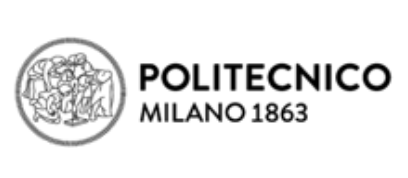

Click on logos for information about our partners and their roles in the RESTORE project
